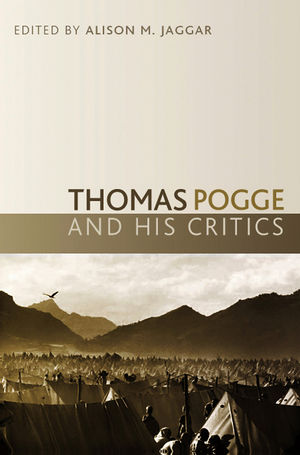Thomas Pogge and his CriticsISBN: 978-0-7456-4258-1
Paperback
224 pages
December 2010, Polity
 This is a Print-on-Demand title. It will be printed specifically to fill your order. Please allow an additional 10-15 days delivery time. The book is not returnable.
Other Available Formats: Hardcover
|
||||||
Ethical Perspectives
"Thomas Pogge is part angry prophet, denouncing severe
injustice, and part analytic philosopher, constructing original
arguments. Jaggar's imaginatively conceived collection of critics
combines some of the best leading scholars with diverse fresh
voices, yielding a variegated, vigorous and valuable debate about
responsibility for world poverty that carries the analysis
significantly forward."
Henry Shue, University of Oxford
"Thomas Pogge argues that extreme poverty is unjustly maintained
by institutional means, and could be ended at marginal cost. His
claims about the causes, remedies and injustice of the present
global order are powerfully criticized in this collection, and his
critics are powerfully taken to task: necessary reading for
thinking about global justice."
Onora O'Neill, University of Cambridge
"No philosopher has done more than Thomas Pogge to explain what
makes the persistence of global poverty so grave an injustice and
no other explanation has provoked such a diverse and interesting
array of responses. This very well-edited volume, containing
commissioned essays by a distinguished group of critics and a
powerful reply by Pogge, is an invaluable resource for anyone
attempting to assess his work and to understand how philosophy can
illuminate debates about global poverty."
Andrew Williams, ICREA and Pompeu Fabra University
"Is global poverty the result of a deeply unjust institutional
order we have helped to impose? Are there modest and feasible
institutional reforms that could eradicate extreme poverty? In
Allison Jaggar's fine volume Thomas Pogge's affirmative answers to
these questions receive sustained scrutiny from a distinguished
group of philosophers. The result is essential reading for those
working on justice across borders."
Paula Casal, University of Reading



